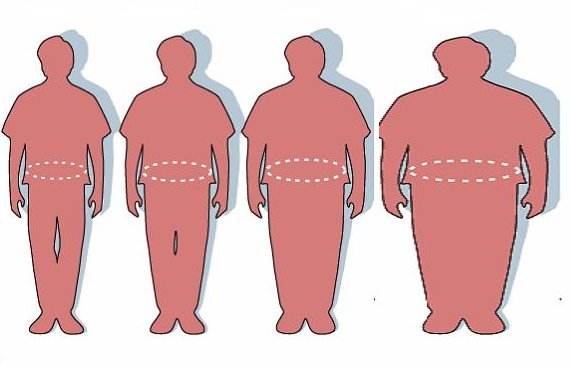Clinically severe obesity is the harbinger of multiple diseases that affect a person from head to toe (literally). Yet a person suffering from obesity is not extended the same sympathy that patients suffering from other diseases get.
This is the first time in the history of medicine that a disease has reached epidemic proportions and yet is fighting to get labelled as a “disease”.
Despite being the cause of death for more than 300,000 people across the world, it is still believed that obesity is a self-inflicted condition and does not deserve treatment. Patients suffering from obesity are looked down upon as people who do not have enough will-power. They are constantly subjected to weight based stigma, prejudice and discrimination. Even today most of us believe that “obesity” is something that a person brings upon himself and he/she makes a conscious choice to suffer from obesity. Society relegates them as people who have low self-esteem, are unattractive and negative.
A few years ago, in an article titled, “Don’t let them eat cake! A view from across the pond”, Robin Mackenzie from the University of Kent said, that there is almost a uniform moral outrage that fat people were selfishly using the health care resources that could have gone to the genuinely ill [1].
Just like gender and racial discrimination, today, “weight discrimination” has become a reality. Weight discrimination further adds to physical and psychological issues in patients suffering from obesity. Weight bias is often ignored and time and again people suffering from obesity are treated unfairly. This is evident from the job interview statistics where the obese are often disqualified without any substantial reasons. Weight discrimination happens all the time around us in subtle forms. Be it job promotions, challenging projects, medical coverage or loans: no reasons are usually given for denial. Health insurance companies in India are the best example of “weight discrimination” against people suffering from obesity. It is appalling that these companies choose to classify obesity as a cosmetic issue that does not deserve valid medical treatment. Unfortunately, neither is weight discrimination considered as a legal offence, nor there are any laws to protect against it.
The other paradigm that needs to be challenged is the “cosmetic” tag that is stuck to obesity. Cambridge university defines “cosmetic” as a word used to refer to substances or treatments that are intended to improve one’s appearance. Coming to think of it, oral cancer also alters the look of a patient, but the treatment of cancer is not considered as a cosmetic therapy. Similarly, cigarette smoking causes lung cancer, but we do not judge these patients as people suffering from a self-afflicted disease.
The figures are out there and they are scary. India is the 3rd fattest country in the world along with being the world’s diabetic capital. A healthcare paradox, India is battling under-nutrition on one side and obesity on the other. Currently, government focus lies mainly on under-nutrition, with most of the national programs and funding being directed towards taking care of the under-nourished. With zero funds, lack of insurance coverage and lack of a dedicated national program directed towards raising awareness about obesity and related disorders, this epidemic is staring into our faces. In a country with a dismal healthcare budget, do we have the resources to tackle this epidemic where, in the near future we will have millions suffering from type 2 diabetes, hypertension, dyslipidaemia, heart disease and so on?
Lack of government interest has led to weight loss developing into a big business in the private sector. Today every gully in India houses atleast a couple of weight loss centres that promise the patients the moon and the stars! Most of these are run by quacks with no training or education in scientifically treating a serious medical disorder such as obesity. These so called, weight loss centres shamelessly cash on the prevalent societal prejudices and more often than not, end up misguiding and mistreating these vulnerable patients. At times these can lead to serious medical problems and by the time these patients come to the hospitals, sadly it is too late.
To eradicate obesity, we first need to recognize it as a disease. A lot of awareness and education is needed to address the fears and myths about the treatment modalities that are available today. A medically supervised diet and exercise regime with lifestyle modification, pharmacotherapy by doctors and bariatric surgery are the only valid treatment options for the treatment of clinically severe obesity. Government needs to lay more focus on this burgeoning epidemic before it is too late. We need a national program that tackles obesity in a systematic manner and it is extremely important that health insurance companies stop discriminating patients suffering from obesity and remove the tag of it being a cosmetic issue. Obesity leads to a plethora of life threatening diseases and deserves treatment like any other ailment.
As a weight loss expert and a bariatric surgeon, I urge people suffering from obesity to not get swayed by quacks and request them to visit hospitals and medical centres that have departments dedicated to weight loss management. Weight loss is a science and only experts must be allowed to treat this serious disorder. Please do not get fooled by the rosy pictures shown to you by the innumerable full-page advertisements that are in our newspapers on a daily basis.
Last but not the least, prevention is always better than cure. On the occasion of the International Obesity Day do pledge that you will avoid unhealthy foods and commit yourself to 30 minutes of daily exercise. After all our body is the only place we have to live in, we must learn to take care of it.
The author is a Bariatric and Laparoscopic GI Surgeon, who is associated with Gleneagles Global Hospital, Apollo Hospital, Saifee hospital, Suchak hospital and Currae Hospital in Mumbai, India.






